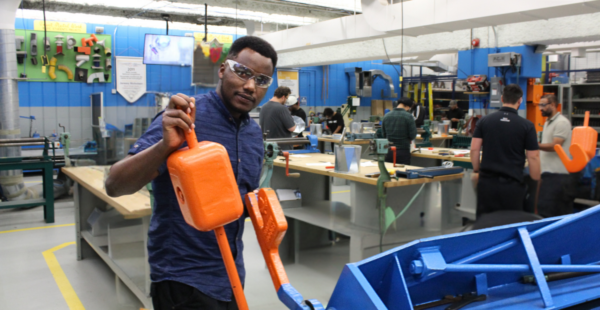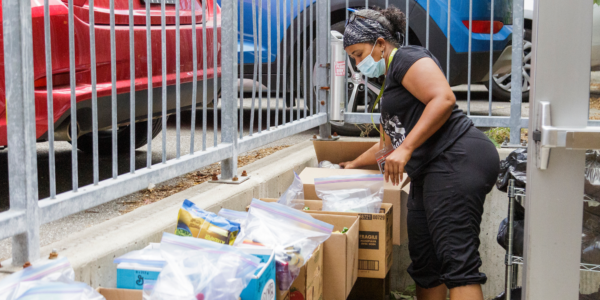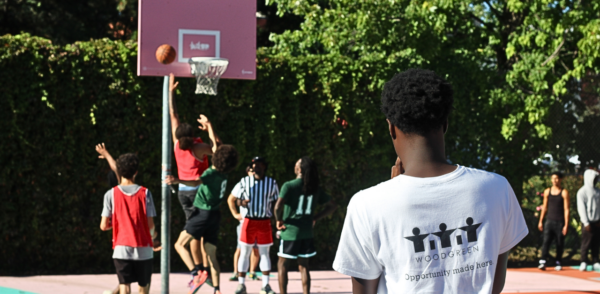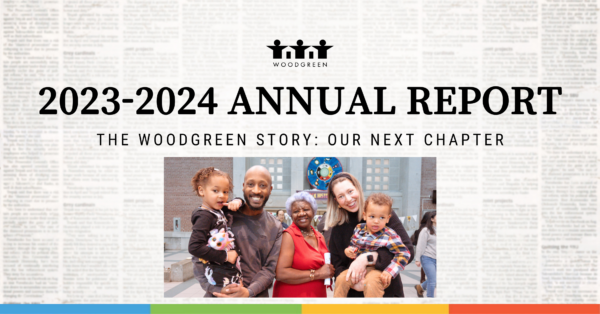For young people navigating the path to adulthood, heritage and community can heavily influence how they view themselves and the world around them. A recent trip, organized by WoodGreen’s Idagba Rites of Passage, gave some youth of Afrikan descent the opportunity to learn more about themselves and their Afrikan heritage.
Last fall, 11 alumni of the program embarked on a transformative journey to Tanzania. Named the “Safari ya Umoja” (The Journey of Oneness), this immersive cultural exchange gave graduates an opportunity to expand on the knowledge and self-awareness they developed throughout their Rites process as they explored the country’s vibrant culture and rich history.
Many cultures have rites of passage to support people during various life stages. Based on a well-tested, internationally recognized, Afro-centric curriculum, WoodGreen’s Idagba Rites of Passage does this for youth of Afrikan descent in Toronto, supporting them in their transition to adulthood. This trip was part of their process.
"For more than 17 years, Rites of Passage has helped young people of Afrikan descent strengthen their sense of identity and purpose,” says Maxine Brown, Director of Youth Programs and Supports. “Our alumni trips help to reinforce the importance of connecting with our Afrikan heritage and embracing it as a reminder of continued strength and resilience.”
Rites of Passage Alumni gearing up for a special journey to Tanzania
Returning to the Motherland
For many of the trip participants, the Safari ya Umoja marked their first time setting foot on Afrikan soil. Some describe the experience as a spiritual awakening.
“Being in Tanzania fed my spirit and my being,” says Jahmeika Reid, a spoken word artist who joined the trip in hopes of being “blessed by the motherland.”

Journeying through the regions of Zanzibar, Arusha City and the Ngorongoro Conservation Area, participants were awed by Tanzania’s beauty and diversity.
Guided by Naona Maasi Tours, a local and Black-owned company, travelers had many opportunities to participate in an immersive experience, including trekking through a river and mountainous terrain to the spectacular Ngare Saro waterfall. Another highlight for the group was their tour of Lake Natron. Benefitting from the conditions of Tanzania’s dry season, they were able to walk across the lake at sunset to watch the flamingos.
Learning more about Tanzania’s biodiversity, participants deepened their understanding of how the Indigenous communities have lived as caretakers of the land, and how climate change and land rights issues threaten their connection to the natural environment.
Embracing Tradition and Community
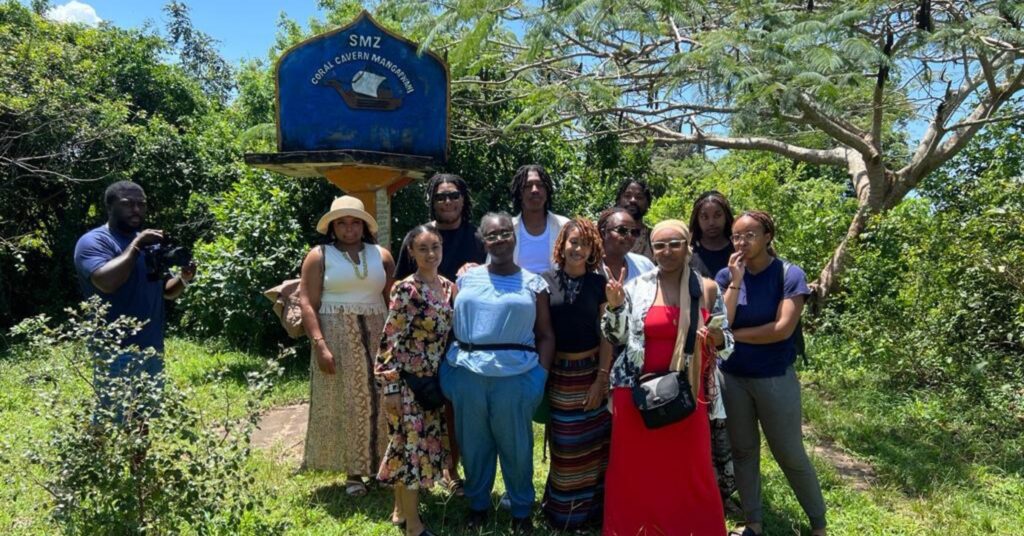
In addition to breathtaking views, the trip to Tanzania gave alumni the opportunity to share cultural stories with Maasai elders and young people. Throughout the trip, participants felt at home thanks to the warmth and hospitality of the community who openly shared their culture, aspects of the Maasai Rites of Passage and other traditions. This included foods, dances and learning new games.
In Arusha city, the team was hosted by the Pastoral Women’s Council, a local non-profit membership organization that works to empower Maasai women and girls to achieve gender equality and community development. PWC was also instrumental in coordinating their visit throughout Arusha.
Additionally, the Rites travellers had an opportunity to connect with other passionate youth. With support from organizations like the Pastoral Women’s Council, Maasai youth are taking on leadership roles to improve the quality of life for their communities, through various local economic development initiatives.
Through these cultural exchanges, participants learned more about the Maasai people, as well as themselves. Sekou James, an aspiring fashion designer, says that the community-driven values of the Maasai have inspired him to bring a greater focus on community to his clothing brand, ‘Made by Sekou.’
“I want my designs to serve as an interpretation of the people who have poured into me,” he says.

The Journey Continues
Since returning to Toronto, participants have taken time to deeply reflect on the experience. With a renewed sense of purpose and pride in their Afrikan heritage, they are excited to share their stories and to use what they have learned to uplift and empower others. They also hope to raise awareness of the land ownership and climate challenges the Maasai people are facing.
Supported by local filmmaker and father of a Rites of Passage participant, Ian Xun, the group has documented their experience through the film, “Going Home Again”. This month, a special screening will be held at Scotiabank Theatre to preview the project. Take a look at the trailer below.
The event will also feature an art gallery showcasing photography by Rites of Passage youth to commemorate their travels.

